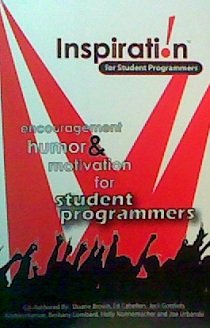
Inspiration for Student Programmers


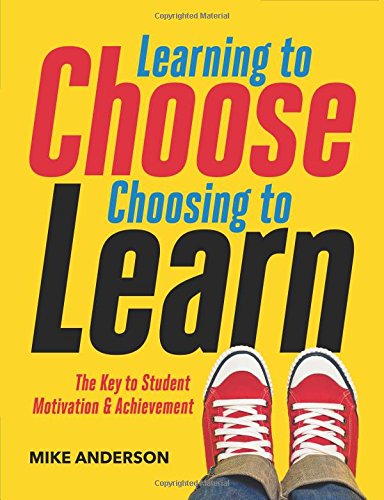
Offering students choices about their learning, says author Mike Anderson, is one of the most powerful ways teachers can boost student learning, motivation, and achievement. In his latest book, Anderson offers numerous examples of choice in action, ideas to try with different students, and a step-by-step process to help you plan and incorporate choice into your classroom. You’ll explore
What effective student choice looks like in the classroom.
Why it’s important to offer students choices.
How to create learning environments, set the right tone for learning, and teach specific skills that enable choice to work well.
When students have more choices about their learning, they can find ways of learning that match their personal needs and be more engaged in their work, building skills and work habits that will serve them well in school and beyond. This teacher-friendly guide offers everything you need to help students who are bored, frustrated, or underperforming come alive to learning through the fundamental power of choice.
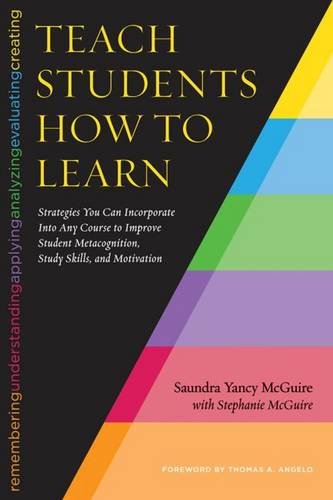
For over a decade Saundra McGuire has been acclaimed for her presentations and workshops on metacognition and student learning because the tools and strategies she has shared have enabled faculty to facilitate dramatic improvements in student learning and success.
The methods she proposes do not require restructuring courses, nor indeed an inordinate amount of time to teach; they can often be accomplished in a single session, transforming students from memorizers and regurgitators to students who begin to think critically and take responsibility for their own learning. While stressing that there are many ways to teach effectively, and that readers can be flexible in picking and choosing among the strategies she presents, Saundra McGuire offers the reader a step-by-step process for delivering the key messages of the book to students in as little as 50 minutes. Free online supplements provide three slide sets and a sample video lecture.
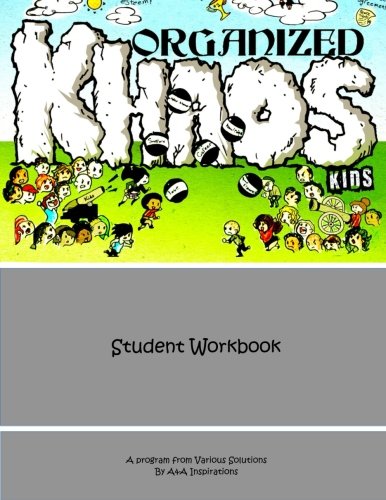
Organized KHAOS is a curriculum created to teach kids how to Keep healing and overcoming struggles through 12 weeks of hands on, peer involved groups. Each week KHAOS kids learn how to love themselves, their peers, and the adults in their lives by learning and implementing skills created by Licensed Clinical Social Worker, Candice Cox. All groups have been implemented in schools and community centers. Teach your children how to develop a Khaos Mindset with this interactive workbook. Your Khaos Kids can learn with their peers, siblings, or alone by utilizing our interactive journal (sold separately) and applying the skills within this manual daily.
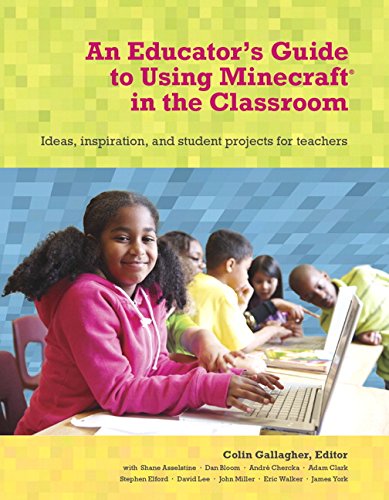
Learn how educators are using Minecraft® as a powerful instructional tool to engage students and teach subjects as varied as math and humanities.
This book offers ten classroom projects from teachers using Minecraft® to teach math, science, languages, and more. Each project includes learning objectives, project organization and tasks, and ideas for reflection and assessments.
You’ll also find detailed instructions for setting up and running a Minecraft® server in the classroom, both the regular and the popular MinecraftEdu versions.
In this book, you’ll discover
What Minecraft® is and why it’s such an engaging tool for the classroom. How to set up and administer servers that students use for their projects. What MinecraftEdu is, how to set up and manage it, and how to use its teacher controls. Techniques for using the game in special-education settings. Step-by-step instructions for printing 3D models of your classroom projects. Ways to use the game in a variety of different subject areas.
You’ll find essential advice and captivating projects for using Minecraft® to enhance students’ learning experience from educators using Minecraft® in the Classroom: Shane Asselstine, Dan Bloom, André Chercka, Adam Clarke, Stephen Elford, Colin Gallagher, David Lee, John Miller, Eric Walker, and James York.
Minecraft® is a trademark of Mojang Synergies/Notch Development AB. This book is not affiliated with or sponsored by Mojang Synergies/Notch Development AB.
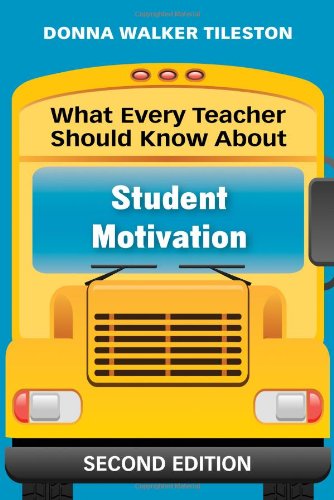
Informed by new research on the brain’s plasticity and new insights on how culture relates to student motivation, this resource focuses on engaging even the most reluctant students!
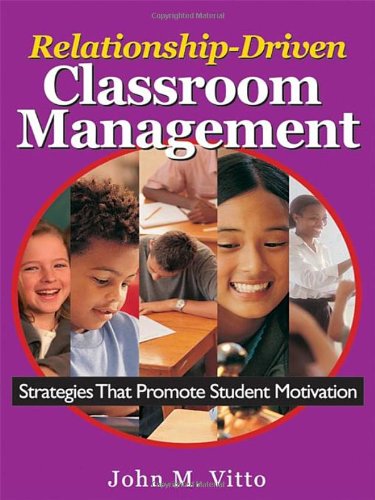
With this valuable resource, teachers can foster social-emotional learning, raise student achievement, and create a more positive classroom environment.
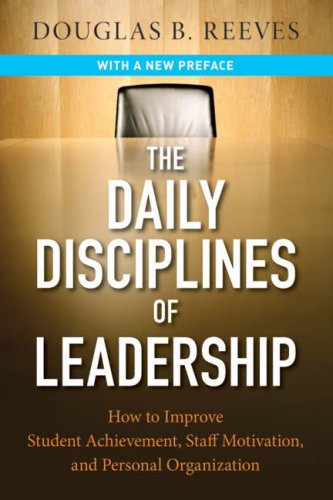
The Daily Disciplines of Leadership is a comprehensive and down-to-earth manual for school leaders that addresses the daunting challenges that today’s principals, superintendents, and teacher-leaders face on a daily basis. Written by Douglas Reeves– a leading authority on academic standards, performance assessment, and accountability– the information in this book is based on his extensive experience working with educators, administrators, and school board members from across the country and internationally. Reeves discusses the basic purpose of leadership, presents four key leadership archetypes, and offers practical recommendations for action. Covering a wide range of topics– from accountability systems to personal communications– this book will serve as the ‘go to’ resource for novice and seasoned school leaders alike.
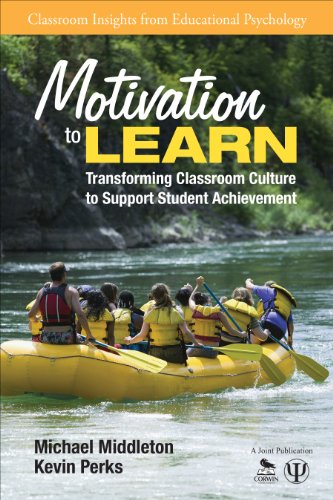
Harness the power of motivation to transform the learning experience!
When properly channeled, motivation propels learning forward. Yet teachers across all grade levels and disciplines struggle to recognize and cultivate this dynamic, social force in the classroom. This essential resource proves that all students are motivated to learn, and provides authentic tools to create and sustain a classroom community that is highly engaged. You’ll discover:
Reflection activities that promote student voice and self-efficacy as well as assess existing motivation levels Case studies and best practices based on current motivation theory and research Strategies to design meaningful learning tasks and build positive relationships with students and colleagues.